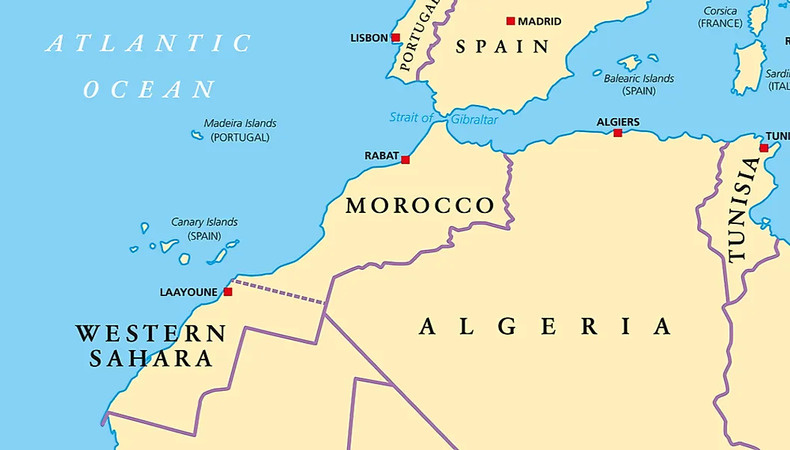EU Backs Morocco Autonomy Plan for Western Sahara

Morocco has gained support of 14 EU countries, with the latest being the Czech Republic, for Rabat’s plan for Western Sahara. A number of African countries also support Morocco’s efforts. They say the autonomy plan presents credible and reassuring prospects to end the current political impasse and to reach an acceptable political solution.
Morocco’s 15-year-old autonomy plan is believed to be the most serious, realistic and credible basis for resolving the conflict. However, the Polisario Front rejected the plan in 2022 and continues to demand a referendum on full self-determination.
Rabat controls around 80 percent of Western Sahara, a vast desert region, which is rich in phosphates and a long Atlantic coast. Morocco took over Western Sahara, previously controlled by a colonial Spain, as its own territory.
Morocco Finds Support in Czech Republic
The Czech Republic described Morocco’s Autonomy Plan as a serious and credible effort by the kingdom and a good basis for a mutually agreed-upon solution between Rabat and Western Sahara. A joint declaration was signed in Prague on Thursday by the Minister of Foreign Affairs, African Cooperation, and Moroccan Expatriates, Nasser Bourita, and the Minister of Foreign Affairs of the Czech Republic Jan Lipavsky.
They affirmed their support to advance the political process based on the relevant resolutions of the UN Security Council. The Czech Republic described the initiative as a solid foundation to reach a mutually agreed-upon solution between the involved parties.
Bourita highlighted the growing international recognition, the autonomy plan is gaining as the basis for resolving the decades-long dispute over the Western Sahara.
Keep Reading
Only Autonomy: Morocco to UN Envoy on Dispute with Western Sahara
Morocco Wants Normal Ties With Algeria, Says King Mohammed
Africa Backs UN-led Political Process in Western Sahara
Moreover, African countries like the Democratic Republic of Congo and Gabon support the UN-led political process. It aims at achieving a realistic, pragmatic, sustainable and compromise-based political solution to end the dispute.
Gabon believes Morocco’s Autonomy Plan presents credible and reassuring prospects for a negotiated political solution. More than 100 countries have expressed similar inclination for the autonomy plan.
Zenon Mukongo Ngay, DRC’s Permanent Representative to the UN, applauded the socio-economic development Morocco launched in favor of southern provinces and local population. This is part of the new development model launched under Morocco’s King Mohammed VI’s instructions.
Burundi’s representative Landry Sibomana welcomed the autonomy initiative and urged all parties to the dispute to engage in the political process to facilitate the resumption of the roundtable process.




